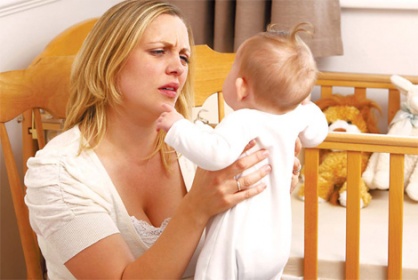 For the most part, postpartum fatigue is a normal part of life with a new baby. The key, though, is to keep that tiredness at a manageable level.Why is this important?
For the most part, postpartum fatigue is a normal part of life with a new baby. The key, though, is to keep that tiredness at a manageable level.Why is this important?
It’s important because fatigue is strongly linked to a whole host of health and coping issues, including depression, a decreased ability to effectively manage stress, increased anxiety, energy loss, concentration problems, emotional numbness, and more.
There are three different levels of fatigue, going from the least to the most severe.
The first level is tiredness, which is normal. The second level is fatigue, which is a bit more serious in terms of coping abilities and state of emotional health. The third level is exhaustion, which is debilitating and serious.
The bottom-line connection between postpartum fatigue and emotional well-being is this: the more you progress along this continuum — from tiredness, to fatigue, and finally to exhaustion — the less able you are to cope and adjust, and the more your physical and emotional health will be compromised.
So gauge yourself. And wherever you are in terms of managing your level of postpartum fatigue, it is imperative that your own self-care is a top priority. This means:
1. Effectively managing postpartum fatigue means getting the rest and sleep you need, when you need it
Yes, this does mean you need help from others, and it does mean that others will likely have to take on some of the responsibilities associated with taking care of baby and house, etc. This is a good thing!
2. Getting a break when you need it
Every mother needs regular down time. Respite is essential for managing fatigue, and is also essential for maintaining emotional health. Don’t feel guilty for wanting or needing this — its necessity is well established in health literature. Foster parents have respite time built in to their care schedule. Same thing for people who take care of the elderly.
3. Getting adequate exercise/activity and nutrition
Yes, this is sounding the same old horn. But it has to be said: eating well (less sugar, less processed food; more grains, fruits and veggies) and getting your body moving are SO important for emotional and physical well-being.
If you are still in the early postpartum stages, you might not be feeling strong enough to exercise. That’s fine. Just getting out of the house and going for a walk is good for your physical and emotional health.
The original version of this article is written by Stephanie Knaak PhD for Motherhood Cafe.
“MummySG, where every Mum is awesome.”







And when this level reaches the exhaustion, then it can lead to the serious bad condition of health. and the mommy is able to do nothing for baby. nice article. very well explained.